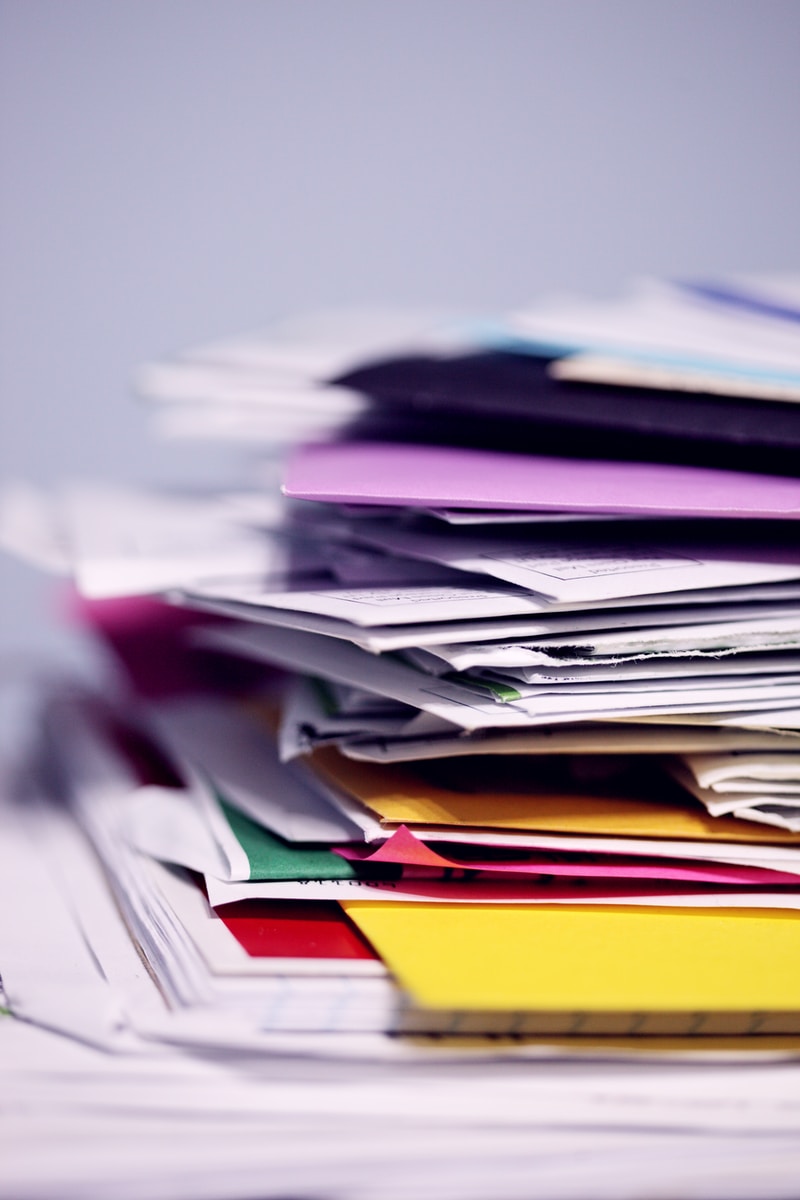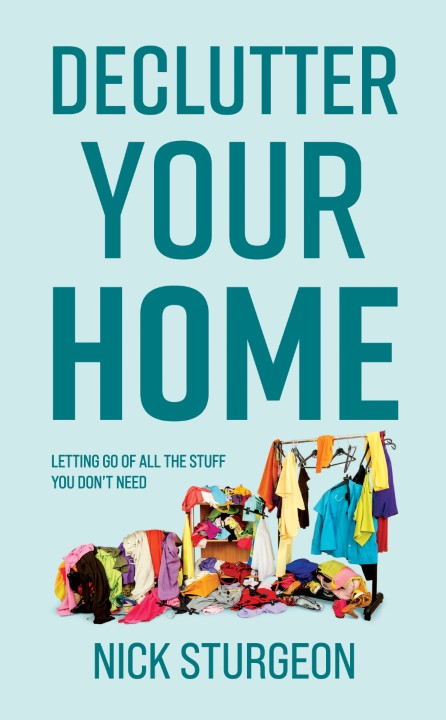Financial clutter is less obvious to the eye than old furniture, unused toys, or ugly crockery. Bank statements, paperwork in envelopes or piles of unopened post, these items can be without order and difficult to navigate.
Are all your paper bank statements in one place and easy to access in just five minutes? The chances are high that you don't keep all your financial information in one place, that as new paperwork comes in to your home it does not systematically end up in the same place that you keep and store your financial records. This is simple to change, and requires only that you become conscious of it. Resolve this quickly and simply by keeping all financial records, statements and passbooks in the same location in your home.
Start with your bank statement and look at all the transactions for a two month period and particularly at the regular and committed payment arrangements you have set up. Are any of these for Shopping Clubs you no longer participate in, for incentive and Discount Clubs where you joined to save money and yet never have enough money to spend to qualify for the Sports and Leisure or Dining Club activities you were seduced by to begin with. If you find any of these regular payment programmes, cancel the payment and cancel the commitment. Just three or four such items at $10 to $20 a month will save you $300 - $400 and more this year. Keep that money in your account and get the potential benefit of being able to ask for a discount the next time you are going to buy something significant and have the cash available for the barter.
What about the files, binders and unopened Financial Post that is stashed randomly around your home? Get these all out and in one session go through them. If you have any papers that are more than a year old shred and dispose of them. A small shredder for your home will occupy far less space than the volume of unneeded statements, letters, documents and general papers that are taking up space in your life and adding to the stagnant energy. If you run a business from home you will need to check with your Tax or Revenue office about the timescale for keeping all financial transaction records, and comply with these requirements. In many cases keeping the detail for the past twelve months and good annual summaries for the previous five to seven years is more than adequate for you and allows for a lot of discarding.
Stay up to date with Financial Apps that allow you to track your spending or monitor your investment monies easily and all from your phone or laptop. Have you looked at installing a Water Meter to your home so you only get billed for your actual use? How about asking your Energy Company for a free Smart Meter to monitor your home usage of gas and electric?
I maintain several properties that we rent out to individuals on a room by room basis. Each house requires a folder for utilities, tax records, rental income, finance costs, cleaning services, purchase of furniture, bedding, carpets and maintenance work. Each house has a subsection within a folder for tenants, all filed alphabetically by surname. One year after a tenant leaves I shred all records of correspondence with them and all their personal details. The housing paperwork is our largest block of paperwork for any ongoing theme and still it only fills a dozen large binders. I don't keep those at home, but instead maintain the paperwork in a small office cum storeroom in one of the buildings. The new space for paperwork has come about by adding upright bookshelves to a small room and using these for keeping stuff neatly and off the floor. Before I got organised and started the letting go process, I had paperwork all over the place and wasted a few hours each week looking for documents. In the old days the paperwork, post and document files, tool kits, tins of paint, and new bedding sets messily took up a room that has now been let as a tidy and well furnished bedroom. The difference in getting organised for just this one example can easily be measured by the $100 a week rent I receive on that bedroom. The paperwork is organised and easy to reference while the income on that house has gone up by $5,200 a year from a space that was poorly used.
Deal with each monthly summary statement as it comes in, whether by paper or email. Check the expenditure against your own receipts. Take any purchase receipts from your purse or wallet on a certain day each week and put them in a place where you do your finances. When your bank statement comes in simply check off the purchase receipts against the larger monthly statement. Everything should match. If you are self-employed and doing your own tax returns save each weekly envelope and date it for easy reference later. When the full tax year is done you can provide the bank statements and the receipts to your book-keeper and you keep your costs down because you are in control.
Get clear on your financial paperwork and you will naturally find yourself better able to make decisions about what to do with your assets so that they start to work for you, building your future wealth and financial freedom. The clearer you get with your finances the harder your money can work for you.

